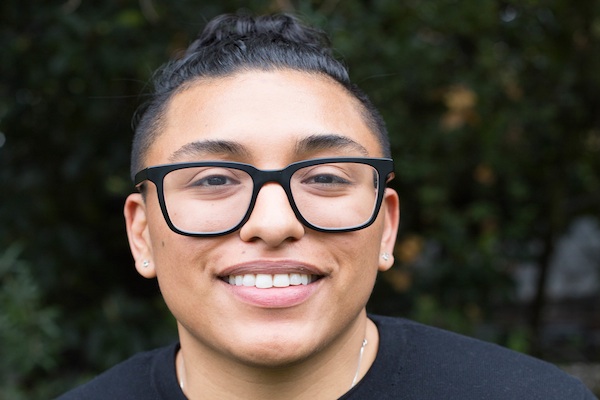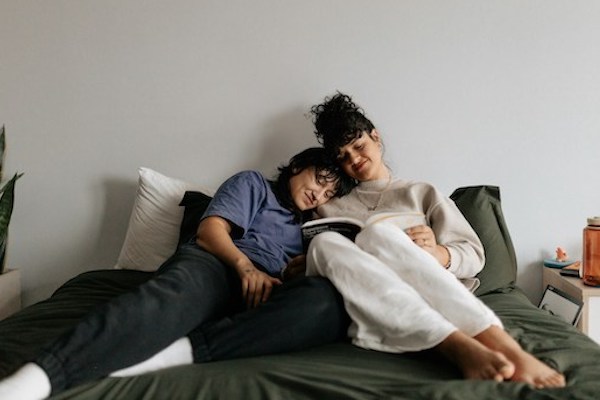
This is a Safe Space: My Experience in Portland’s Progressive Bubble
March 2, 2017
Musiq Scene: TinVulva
March 7, 2017K Martinez (they/them) is an Afro-Latinx based out of Oakland, California, but originally from Boston with a significant lay-over in New Orleans. They’re currently the Associate Director of the Diversity and First Generation Office at Stanford University.
Describe yourself in a six-word sentence.
People told me slow my roll.
What was the last thing you shared on social media?On Facebook, a 2015 story from the Boston Herald, “Tom Brady catches flax for snubbing President Obama.”
On Instagram, an image of people holding a “this is war” banner in front of a display of lights which look like and LGBT flag from the demonstrations at UC Berkeley regarding Milo’s speech (@k_pmz).
On twitter, I retweeted a GIF from @headwitch_ of a person in a costume running from explosions to the caption, “trying to avoid toxic behavior/people while staying positive” (@kathypmartinez_).
What do you think is the main challenge facing LGBTQ people in your community?
I am a part of different communities simultaneously because I am Blatinx or Afro-Latinx so I can’t isolate one main challenge facing my communities.
I feel like a challenge within the LGBTQ community is understanding the interconnectedness of our oppressions. There are divisions within the LGBTQ community and we need much more intra-community work. For example, the racism and white centricity that tends to manifest in LGBTQ spaces pushes people of color out altogether. Even the term “people of color” creates challenges because it erases our unique racial and ethnic identities.
I think trans experiences often get silenced or minimized within our communities, particularly the experiences of Brown and Black Trans folks.
In my professional realm, I work closely with LGBTQ undergraduate students, particularly queer and trans students of color, and they are navigating a myriad of challenges within institutions of higher education. Mental health and the impacts of front line activism take a significant toll on the students I have gotten to know.
What is your favorite LGBTQ business where you live?
Oakland has a vibrant and diverse LGBTQ scene so there are many LGBTQ businesses to choose from. I really appreciate the work that comes out of the Qulture Collective which is a multi-use space and queer community platform in downtown Oakland featuring a retail shop, cafe, and gallery. They are dedicated to serving the LGBTQIA+ and allied community with a focus on building QTPOC visibility.
What advice do you have for people looking to be just like you?
Please don’t be just like me – be you! Part of what I enjoy about working with LGBTQ college students is encouraging their self-reflection and exploration. I try to encourage them to be their whole selves when we spend time together. I, too, am working on being my whole self in spaces I’m in and I’m trying to regularly check in with myself about my gender and identities. I definitely don’t have things figured out yet but I try to model transparency, humility, and vulnerability with the young folks I get to work with.





